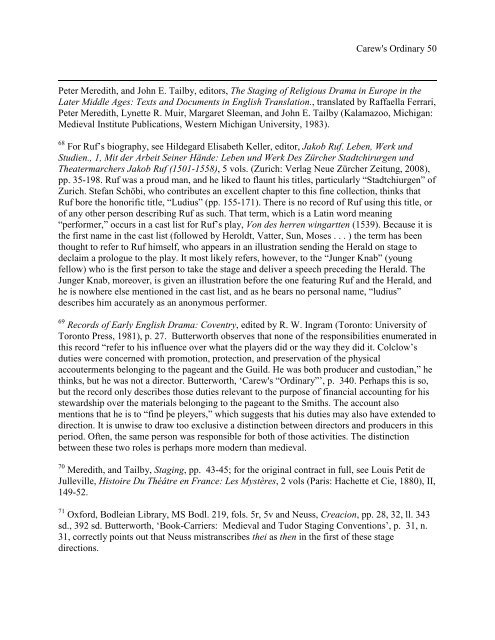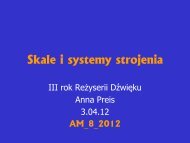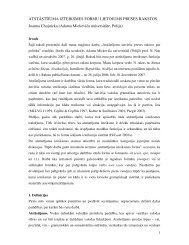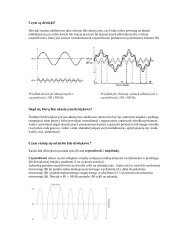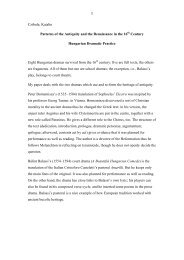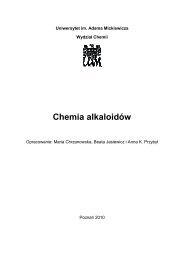Richard Carew. The Ordinary, The Ordinalia, and the Ordinary Actor ...
Richard Carew. The Ordinary, The Ordinalia, and the Ordinary Actor ...
Richard Carew. The Ordinary, The Ordinalia, and the Ordinary Actor ...
You also want an ePaper? Increase the reach of your titles
YUMPU automatically turns print PDFs into web optimized ePapers that Google loves.
<strong>Carew</strong>'s <strong>Ordinary</strong> 50<br />
Peter Meredith, <strong>and</strong> John E. Tailby, editors, <strong>The</strong> Staging of Religious Drama in Europe in <strong>the</strong><br />
Later Middle Ages: Texts <strong>and</strong> Documents in English Translation., translated by Raffaella Ferrari,<br />
Peter Meredith, Lynette R. Muir, Margaret Sleeman, <strong>and</strong> John E. Tailby (Kalamazoo, Michigan:<br />
Medieval Institute Publications, Western Michigan University, 1983).<br />
68 For Ruf’s biography, see Hildegard Elisabeth Keller, editor, Jakob Ruf. Leben, Werk und<br />
Studien., 1, Mit der Arbeit Seiner Hände: Leben und Werk Des Zürcher Stadtchirurgen und<br />
<strong>The</strong>atermarchers Jakob Ruf (1501-1558), 5 vols. (Zurich: Verlag Neue Zürcher Zeitung, 2008),<br />
pp. 35-198. Ruf was a proud man, <strong>and</strong> he liked to flaunt his titles, particularly “Stadtchiurgen” of<br />
Zurich. Stefan Schöbi, who contributes an excellent chapter to this fine collection, thinks that<br />
Ruf bore <strong>the</strong> honorific title, “Ludius” (pp. 155-171). <strong>The</strong>re is no record of Ruf using this title, or<br />
of any o<strong>the</strong>r person describing Ruf as such. That term, which is a Latin word meaning<br />
“performer,” occurs in a cast list for Ruf’s play, Von des herren wingartten (1539). Because it is<br />
<strong>the</strong> first name in <strong>the</strong> cast list (followed by Heroldt, Vatter, Sun, Moses . . . ) <strong>the</strong> term has been<br />
thought to refer to Ruf himself, who appears in an illustration sending <strong>the</strong> Herald on stage to<br />
declaim a prologue to <strong>the</strong> play. It most likely refers, however, to <strong>the</strong> “Junger Knab” (young<br />
fellow) who is <strong>the</strong> first person to take <strong>the</strong> stage <strong>and</strong> deliver a speech preceding <strong>the</strong> Herald. <strong>The</strong><br />
Junger Knab, moreover, is given an illustration before <strong>the</strong> one featuring Ruf <strong>and</strong> <strong>the</strong> Herald, <strong>and</strong><br />
he is nowhere else mentioned in <strong>the</strong> cast list, <strong>and</strong> as he bears no personal name, “ludius”<br />
describes him accurately as an anonymous performer.<br />
69 Records of Early English Drama: Coventry, edited by R. W. Ingram (Toronto: University of<br />
Toronto Press, 1981), p. 27. Butterworth observes that none of <strong>the</strong> responsibilities enumerated in<br />
this record “refer to his influence over what <strong>the</strong> players did or <strong>the</strong> way <strong>the</strong>y did it. Colclow’s<br />
duties were concerned with promotion, protection, <strong>and</strong> preservation of <strong>the</strong> physical<br />
accouterments belonging to <strong>the</strong> pageant <strong>and</strong> <strong>the</strong> Guild. He was both producer <strong>and</strong> custodian,” he<br />
thinks, but he was not a director. Butterworth, ‘<strong>Carew</strong>'s “<strong>Ordinary</strong>”’, p. 340. Perhaps this is so,<br />
but <strong>the</strong> record only describes those duties relevant to <strong>the</strong> purpose of financial accounting for his<br />
stewardship over <strong>the</strong> materials belonging to <strong>the</strong> pageant to <strong>the</strong> Smiths. <strong>The</strong> account also<br />
mentions that he is to “find þe pleyers,” which suggests that his duties may also have extended to<br />
direction. It is unwise to draw too exclusive a distinction between directors <strong>and</strong> producers in this<br />
period. Often, <strong>the</strong> same person was responsible for both of those activities. <strong>The</strong> distinction<br />
between <strong>the</strong>se two roles is perhaps more modern than medieval.<br />
70 Meredith, <strong>and</strong> Tailby, Staging, pp. 43-45; for <strong>the</strong> original contract in full, see Louis Petit de<br />
Julleville, Histoire Du Théâtre en France: Les Mystères, 2 vols (Paris: Hachette et Cie, 1880), II,<br />
149-52.<br />
71 Oxford, Bodleian Library, MS Bodl. 219, fols. 5r, 5v <strong>and</strong> Neuss, Creacion, pp. 28, 32, ll. 343<br />
sd., 392 sd. Butterworth, ‘Book-Carriers: Medieval <strong>and</strong> Tudor Staging Conventions’, p. 31, n.<br />
31, correctly points out that Neuss mistranscribes <strong>the</strong>i as <strong>the</strong>n in <strong>the</strong> first of <strong>the</strong>se stage<br />
directions.


